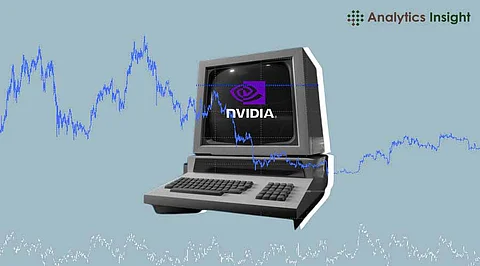

In the ever-changing landscape of finance and technology, Nvidia (NASDAQ: NVDA) has become a powerful player over the last few years. Once known for its graphics processing units (GPUs) in gaming, Nvidia has reinvented itself as an artificial intelligence (AI) giant, driving machine learning, cloud computing, and high-performance computing. But as its stock price rises, some investors ask: Is Nvidia the next big tech bubble?
Nvidia's stock has jumped over 1,776% in five years. The company is growing fast because AI is in high demand. Businesses are investing in AI, data centers, and powerful chips. This has made Nvidia worth over $3 trillion. In its latest report, it earned $39.3 billion in one quarter, 78% more than last year.
Revenue: $39.3 billion in Q4 FY25 (up from $21.9 billion last year)
Data Center Sales: $35.6 billion (almost double from last year)
Profit: $12.2 billion (93% more than last year)
Earnings Per Share: $5.16 (better than expected)
Stock Growth: Up 225% in the last year
Despite its stellar performance, Nvidia's stock experienced a recent dip following the rise of DeepSeek, a Chinese AI startup that has developed cost-effective AI chips competing directly with Nvidia’s offerings. The announcement of DeepSeek’s high-performance AI accelerators at a fraction of the cost of Nvidia’s H100 series caused investor concerns about Nvidia’s dominance in the AI chip industry. As a result, Nvidia’s stock dropped more than 10% in a single trading session, marking its largest single-day loss in months.
Analysts now fear that increased competition from emerging AI firms, especially those benefiting from lower production costs in China, could erode Nvidia’s market share in the long run. However, Nvidia still maintains a technological edge, particularly in software and AI ecosystem integrations, which could help mitigate these risks.
Some experts believe Nvidia’s stock price is too high. The company trades at a P/E ratio of 50, which is much higher than most tech companies.
AI Demand Might Slow Down: Companies may already have enough AI systems.
More Competition: AMD, Intel, and Chinese AI firms are making their own AI chips.
Trade Issues with China: Nvidia gets 10-15% of its sales from China, but trade restrictions could be a problem.
Stock Price Swings: Even after great earnings, Nvidia’s stock fell 8%, showing that investors may have already expected strong results.
From a technical perspective, Nvidia’s stock has been experiencing strong momentum, but recent price action suggests possible overbought conditions.
Relative Strength Index (RSI): Currently above 70, indicating overbought conditions
200-Day Moving Average (MA): NVDA remains well above its 200-day MA, signaling a strong uptrend
Support & Resistance: Nvidia’s stock has key resistance at $135 and support around $115
While Nvidia has been on an upward trend, the potential for a pullback exists if market sentiment shifts or broader economic concerns arise.
1. AI Expansion Still in Early Stages: Nvidia’s AI chips are not only used for ChatGPT-like models but also in autonomous vehicles, healthcare, robotics, and fintech.
2. Strong Partnerships: Nvidia is collaborating with Tesla, Amazon, Microsoft, and Google, ensuring that its technology remains integral to next-generation computing.
3. Global Data Center Growth: As cloud computing continues to expand, Nvidia benefits directly from the increasing demand for AI-driven infrastructure.
4. Strong R&D Investments: Nvidia continues to invest heavily in next-gen chip technology, reinforcing its lead in AI computing.
Analysts remain largely optimistic about Nvidia’s stock, although some caution against expecting rapid gains from here.
Goldman Sachs: Price target at $180, citing continued AI dominance
Morgan Stanley: Neutral, with a price target of $165
Bank of America: Bullish, with a target of $190
With an average price target of $169.53, analysts project a 30% potential upside from current levels.
Nvidia is a top company in AI computing, and its revenue is growing because of strong business performance. However, its stock price is very high right now, which brings risks like overvaluation, competition, and economic changes.
For long-term investors, Nvidia is still a good choice because of its strong position in AI and high-performance computing. But short-term traders should be careful, as the stock might face ups and downs if the market cools down.
